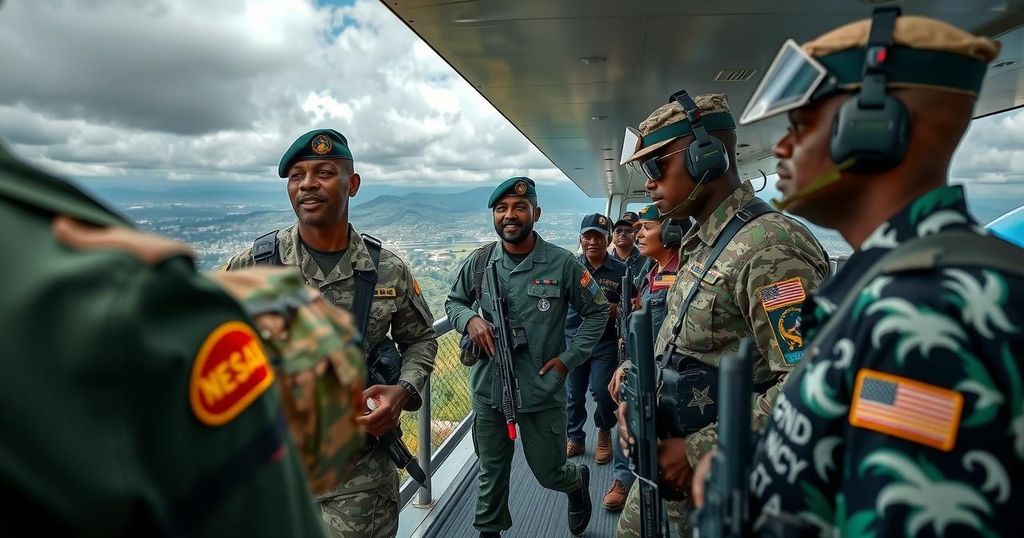Russia Expands Military Influence in Equatorial Guinea
Russia has reportedly sent approximately 200 military instructors to Equatorial Guinea, focusing on training elite guards in key cities. This deployment is part of Russia’s strategy to enhance its influence in Africa, aligning with the country’s controversial leadership, particularly concerning human rights. The move may impact U.S. interests in the region, as Equatorial Guinea strengthens military ties with Russia amid dissatisfaction with traditional Western partnerships.
Recent reports indicate that Russia has dispatched between 100 to 200 military instructors to Equatorial Guinea to bolster the protection of its presidency. The troops are reportedly engaged in training the nation’s elite guard in cities such as Malabo and Bata. This deployment aligns with Russia’s broader strategy of expanding its influence in Africa, which has involved sending mercenaries to assist military regimes against insurgencies. Additionally, both Equatorial Guinea’s President Teodoro Obiang Nguema Mbasogo and Vice President Teodoro Obiang Mangue have fostered closer ties with Russia, including recent visits to the country and discussions regarding defense cooperation and military agreements. This emergence of Russian military presence comes against a backdrop of escalating interest from various nations in Africa, particularly regarding security partnerships. Notably, Equatorial Guinea has a controversial human rights record, drawing criticism for practices such as arbitrary killings and torture. As Equatorial Guinea seeks to diversify its military and economic relationships, the presence of Russian troops could significantly alter regional dynamics, potentially undermining U.S. interests. Tutu Alicante, a human rights activist, expressed concerns about the implications of Russian military engagement in the region, suggesting it represents a shift in geopolitical alliances, particularly amidst disillusionment with traditional Western partners.
The recent military engagement of Russia in Equatorial Guinea exemplifies a larger pattern of Russian interest in African nations, where it has increasingly sought to extend its influence. Russia’s efforts, particularly through the deployment of military instructors and mercenaries, come as several West African nations have pivoted away from traditional alliances with Western powers amidst dissatisfaction with the handling of local insurgencies. Equatorial Guinea’s leadership, particularly President Obiang, known for his lengthy tenure, is exploring military partnerships amid stringent international scrutiny regarding human rights violations and governance issues.
In conclusion, the deployment of Russian military instructors in Equatorial Guinea underscores the country’s strategic pivot towards Moscow amidst shifting alliances on the African continent. This situation raises significant concerns about the implications for U.S. geopolitical interests, particularly as regional dynamics evolve and countries increasingly seek closer ties with Russia. The engagement also highlights ongoing issues related to human rights and governance in the country, suggesting that international oversight will remain a critical component of Equatorial Guinea’s future interactions on the global stage.
Original Source: www.bbc.com




Post Comment